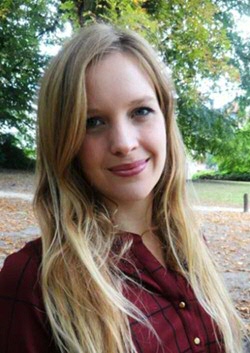Duurzaam ondernemen en circulaire economie vraagt om nieuwe samenwerkingsverbanden met stakeholders

Ondernemingen spelen een belangrijke rol in het bereiken van maatschappelijke duurzaamheid. Zij kunnen deze rol vervullen aan de hand van circulaire principes als reduce, reuse, and remanufacture, oftewel minderen, hergebruiken en herfabriceren. Voor het ontwikkelen, behouden en herstellen van collectieve waarden zijn nieuwe samenwerkingsverbanden met belangrijke stakeholders nodig. Hoe kunnen ondernemingen op nieuwe manieren met hun stakeholders samenwerken om duurzaamheid en de circulaire economie te bevorderen?
Manon Eikelenboom (27), promovenda aan het Centre for Sustainable Entrepreneurship aan de Rijksuniversiteit Groningen/Campus Fryslân, verdedigt op 3 februari haar proefschrift over dit onderwerp, waarin ze een aantal interessante conclusies trekt. Voor haar onderzoek hield Eikelenboom twee grootschalige enquêtes en onderzocht ze samen met een aantal Friese woningbouwverenigingen hoe nieuwe samenwerkingsverbanden met lokale gemeenschappen mogelijk tot stand kunnen komen.
Samenwerking met verschillende stakeholders is essentieel
Uit haar onderzoek blijkt dat ondernemingen moeten communiceren en samenwerken met verschillende soorten stakeholders, waaronder leveranciers, klanten, concurrenten, kennisinstellingen, overheidsinstellingen en lokale gemeenschappen. Manon Eikelenboom legt uit: “Dit kan allerlei voordelen hebben. Je kunt bijvoorbeeld makkelijker aan hulpbronnen komen, samen met anderen kun je als onderneming betere strategieën en oplossingen ontwikkelen dan alleen, en draagvlak vinden wordt ook makkelijker.”
Duurzame en circulaire netwerken opbouwen kan lastig zijn. Ondernemingen moeten opeens andere vaardigheden aan de dag leggen en op managementniveau anders gaan denken. Toch moeten ze wel, want niets doen kan in een later stadium leiden tot hoge kosten doordat ze met hun circulaire strategieën de gewenste milieuvoordelen voor de langere termijn niet behalen. Eikelenboom: “Dan gaan ze bijvoorbeeld circulaire woningen bouwen die niet voldoen aan de wensen van de klant. Die woningen worden vervolgens voortijdig weer afgebroken, waardoor van duurzaamheid geen sprake is.”
Samen circulair denken met lokale gemeenschappen
In haar proefschrift benadrukt Eikelenboom dat ondernemingen in hun circulaire strategieën verder moeten kijken dan alleen naar de milieu- en technische kanten. Ook de maatschappelijke dimensie is belangrijk, om draagvlak voor circulaire strategieën te creëren, rebound-effecten te verminderen, inclusiviteit te bevorderen en gezamenlijke circulaire benaderingen te ontwikkelen die economische, maatschappelijke en milieuvoordelen bieden. Hiervoor moeten ondernemingen ervoor zorgen dat ze lokale gemeenschappen in een vroeg stadium actief betrekken bij hun circulaire strategieën. In haar onderzoek bekeek Eikelenboom onder meer een project waarin burgers werden betrokken bij de inzameling en upcycling van afvalmateriaal. Buurtbewoners vrolijkten bijvoorbeeld het plaatselijke stadion op met bloemen die anders weggegooid werden.
Manon Eikelenboom verdedigt haar proefschrift op 3 februari vanaf 16.15 uur in het gemeentehuis van Leeuwarden. De zitting wordt gestreamd.
Over Manon Eikelenboom
Manon Eikelenboom studeerde Global Economics and Management aan de Rijksuniversiteit Groningen en begon in 2017 met haar PhD aan het Centre for Sustainable Entrepreneurship in Leeuwarden. Op dit moment werkt ze als postdoc aan de Vrije Universiteit Amsterdam aan circulaire transities in de bouw.
